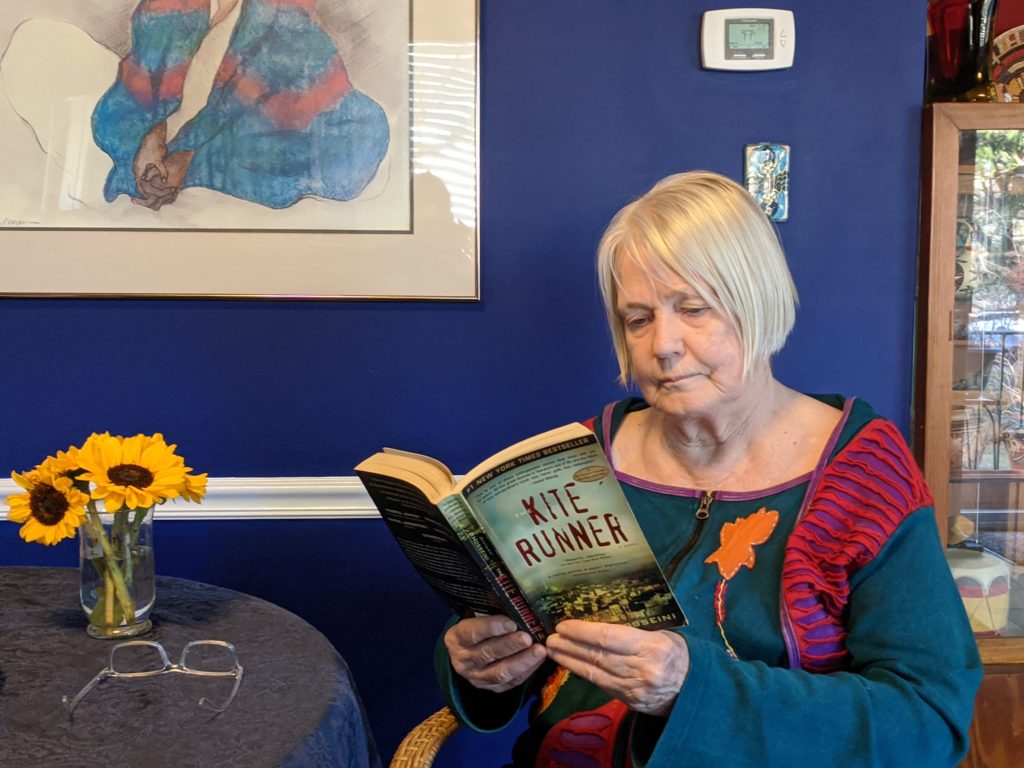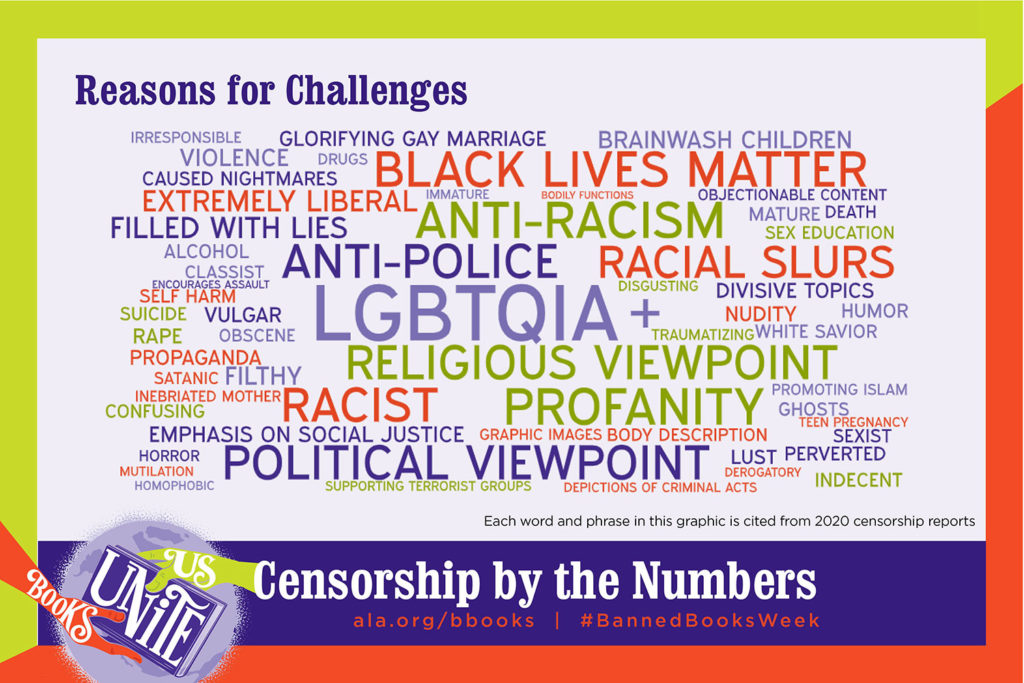
If you think you’ve been hearing more about banned books lately, you’re absolutely right. According to the New York Times, the American Library Association (ALA) has reported 330 recent reports of book challenges—more than ever before.
The ALA list of banned and challenged books distinguishes between a “challenge” (an attempt to remove or restrict materials in a classroom or library, based on the objections of one person or group) and actual “banning” (when the material is removed.) You can look up the top 10 books challenged each year (for the years 2000-2020) with the reasons each book was challenged.
Honestly, a look at that list is eye opening. The reasons given are as interesting as the titles themselves.
For three years running (2018-2020), the #1 most often mentioned book was George by Alex Gino, the sensitive portrayal of a transgender child coming to terms with gender identity. It was challenged, banned, and restricted for LGBTQIA+ content, conflicting with a religious viewpoint, and not reflecting “the values of our community.”
- Number 5 was The Absolutely True Diary of a Part-Time Indian by Sherman Alexie, banned and challenged for profanity, sexual references, and allegations of sexual misconduct by the author.
- To Kill a Mockingbird by Harper Lee (#7) was still being both banned and challenged for racial slurs and their negative effect on students, for featuring a “white savior” character, and for its perception of the Black experience.
- The #10 book in 2019 was a children’s picture book, And Tango Makes Three by Peter Parnell and Justin Richardson, the story of two male penguins at the Central Park Zoo who became inseparable. When zookeepers gave the pair a motherless egg, they successfully hatched baby Tango. This story about a same-sex family was challenged and relocated for LGBTQIA+ content.
Most writers can’t stand the idea of limiting access to books. What can you do to counter the pressures librarians and teachers get to remove books from circulation? I’ve been following this issue for years, and here are a few possibilities:
- Stand up to censorship and participate in the Stand for the Banned Virtual Readout by posting a video of yourself or a kid you know reading from a banned book or talking about censorship. Videos may be featured on the Banned Books Week YouTube channel. Read guidelines here: https://bannedbooksweek.org/videos/
- Report instances of censorship to members of the Banned Books Week Coalition:
- The American Library Association at https://www.ala.org/tools/challengesupport/report
- The Comic Book Legal Defense Fund by calling 1-800-99-CBLDF or emailing info@cbldf.org
- The National Coalition Against Censorship at https://ncac.org/report-censorship-page
- The National Council of Teachers of English by completing the form at https://secure.ncte.org/forms/reportcensorship or by emailing intellectualfreedom@ncte.org
- Exercise your reading rights. Check out or buy a banned book from the ALA’s list. Encourage your book club to discuss what you read.
- Pick a Banned Books image from Pinterest and post it online.
- Help celebrate Banned Books Week (Sept. 18-24 in 2022)
- And follow it on Twitter:
- Organize a First Amendment Film Festival or simply share the link to this ALA page on film and video productions that vividly depict the impact of censorship on individuals and society. Organize a watch group to notify people when a listed film is scheduled for local TV or cable.
- Join ASJA’s First Amendment Committee, which addresses issues of Banned Books and other freedom of the press issues. Contact committee chair JoBeth McDaniels for more information.
And lastly, don’t despair. As Phyllis Reynolds Naylor points out: “Well, the man who first translated the bible into English was burned at the stake, and they’ve been at it ever since. Must be all that adultery, murder, and incest. But not to worry. It’s back on the shelves.”

More ideas and resources here: https://www.ala.org/advocacy/bbooks/bannedbooksweek/ideasandresources
For social media/keywords:
#bannedbooks #censorship #firstamendment #nationalcoalitionagainstcensorship #bannedbookslist
“…people burn books, and that they ban books is, in a way, a good sign. It’s a good sign because it means books have power. When people burn books, it’s because they’re afraid of what’s inside them…”
― Marcus Sedgwick, The Monsters We Deserve
“Well, the man who first translated the bible into English was burned at the stake, and they’ve been at it ever since. Must be all that adultery, murder, and incest. But not to worry. It’s back on the shelves.”
― Phyllis Reynolds Naylor
